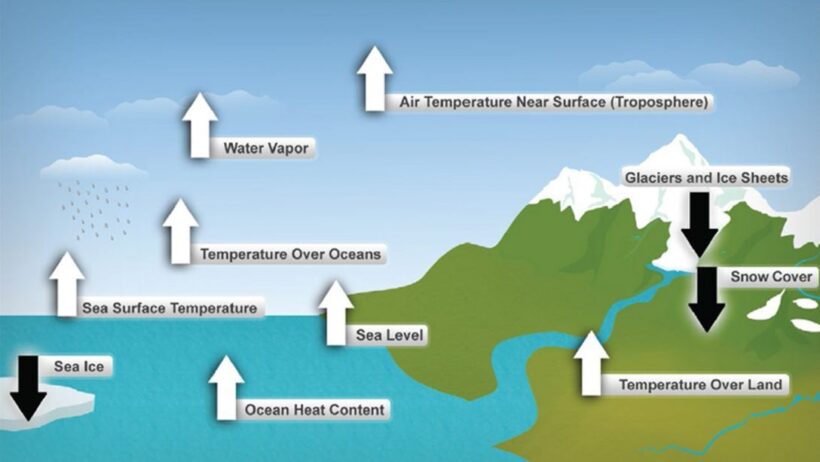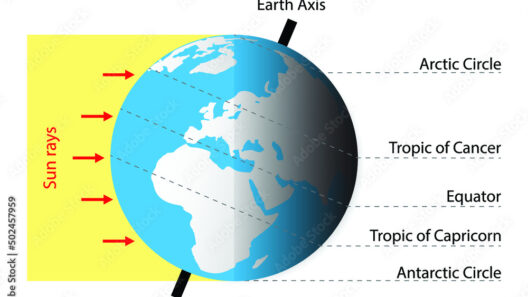As we confront one of the most pressing challenges of our time, a playful question arises: What would Earth say if it could talk? Perhaps it would lament the changes sweeping across its boundaries, declaring a need for an urgent reckoning, as the problems of climate change intensify. But why exactly is climate change such a monumental problem? This question is multifaceted, so let’s break it down into several pivotal aspects.
The most conspicuous issue is the impact on ecosystems. Climate change disrupts the delicate equilibrium that sustains biodiversity. Consider the polar bears struggling on dwindling ice caps; their plight is emblematic of a broader crisis. Species are not just losing their homes; they face extinction due to altered habitats and shifting climates. The extinction of one species can ripple through food webs, leading to dire consequences for other organisms. If we lose biodiversity, we not only compromise the beauty of nature but also the resilience of ecosystems that we rely on for clean air, water, and food.
This brings us to another critical dimension: food security. Climate change exacerbates agricultural challenges. Variability in weather patterns creates droughts in some regions while flooding others. Crops that once thrived under predictable conditions now face unpredictability. This insecurity threatens the livelihoods of farmers and the availability of food. What will happen when we cannot guarantee a stable food supply? The potential for widespread malnutrition and starvation looms, particularly in vulnerable communities already grappling with poverty.
Moreover, the economic ramifications of climate change are substantial. Extreme weather events—such as hurricanes, floods, and wildfires—are becoming more frequent and severe. These events do not just disrupt lives; they wreak havoc on economies. The cost of disaster recovery is staggering, often leading to billions of dollars in damage. Communities that formerly flourished can deteriorate rapidly, creating a cycle of poverty and deprivation. As industries falter under climate pressures, employment opportunities dwindle, exacerbating social disparities.
Inextricably linked to economic issues are the social implications of climate change. The phenomenon does not affect everyone equally; rather, it disproportionately impacts marginalized communities. Environmental justice is at the forefront of this discussion. Communities that have contributed the least to greenhouse gas emissions often face the most severe consequences. This inequity raises pivotal ethical questions: How do we ensure that our solutions are just? Who bears the burden of climate adaptation and mitigation?
Furthermore, the interplay between climate change and health cannot be overlooked. The environmental shifts we are witnessing catalyze a plethora of health issues. Rising temperatures contribute to heat-related illnesses, while shifting patterns of diseases threaten public health. Air quality deteriorates as pollution mounts, leading to respiratory conditions and other health complications. The psychological toll cannot be ignored either—communities grappling with the reality of climate disasters often experience anxiety, depression, and a sense of helplessness.
Climate change also shapes geopolitical dynamics. As resources become scarcer, competition intensifies, potentially leading to conflicts. Water supplies may dwindle; nations could find themselves at odds over access to dwindling resources. The concept of climate refugees is emerging as a stark reality for millions, adding pressure on borders and strained international relations. As nations navigate these turbulent waters, cooperation becomes essential. However, historical precedents suggest that achieving consensus is far from straightforward.
Despite the profound ramifications, there is hope—if we choose to embrace it. Sustainable practices and technologies are at our disposal. Transitioning to renewable energy sources presents one tangible solution. Wind, solar, and hydroelectric power offer alternatives that mitigate carbon footprints. By investing in these technologies, we not only combat carbon emissions but also create job opportunities and stimulate economic growth.
Moreover, fostering a culture of conservation can make a significant difference. Individual actions, when multiplied across communities, can lead to systemic change. Simple choices—such as reducing waste, conserving water, and choosing sustainable products—contribute to a larger collective effort. Governments have a crucial role to play in implementing policies that incentivize sustainable practices and facilitate innovation.
Education and advocacy are paramount in this fight. Awareness is the first step toward action. By equipping individuals with knowledge about the consequences of climate change, we can inspire widespread mobilization. Encouraging dialogue about environmental rights and the urgency for action can galvanize communities to advocate for policies that address climate change comprehensively.
In conclusion, the challenges posed by climate change are immense and multifaceted. From threatened ecosystems to socio-economic inequalities, the implications reverberate across all facets of life. Yet, this daunting reality encourages a collective reckoning and proactivity. We can transform the narrative around climate change from one of despair to one of opportunity and innovation. The time to act is now; the health of our planet and future generations depend upon it. As we ponder what Earth would say if it could talk, we must ensure its message is one of hope, resilience, and collaborative action.






